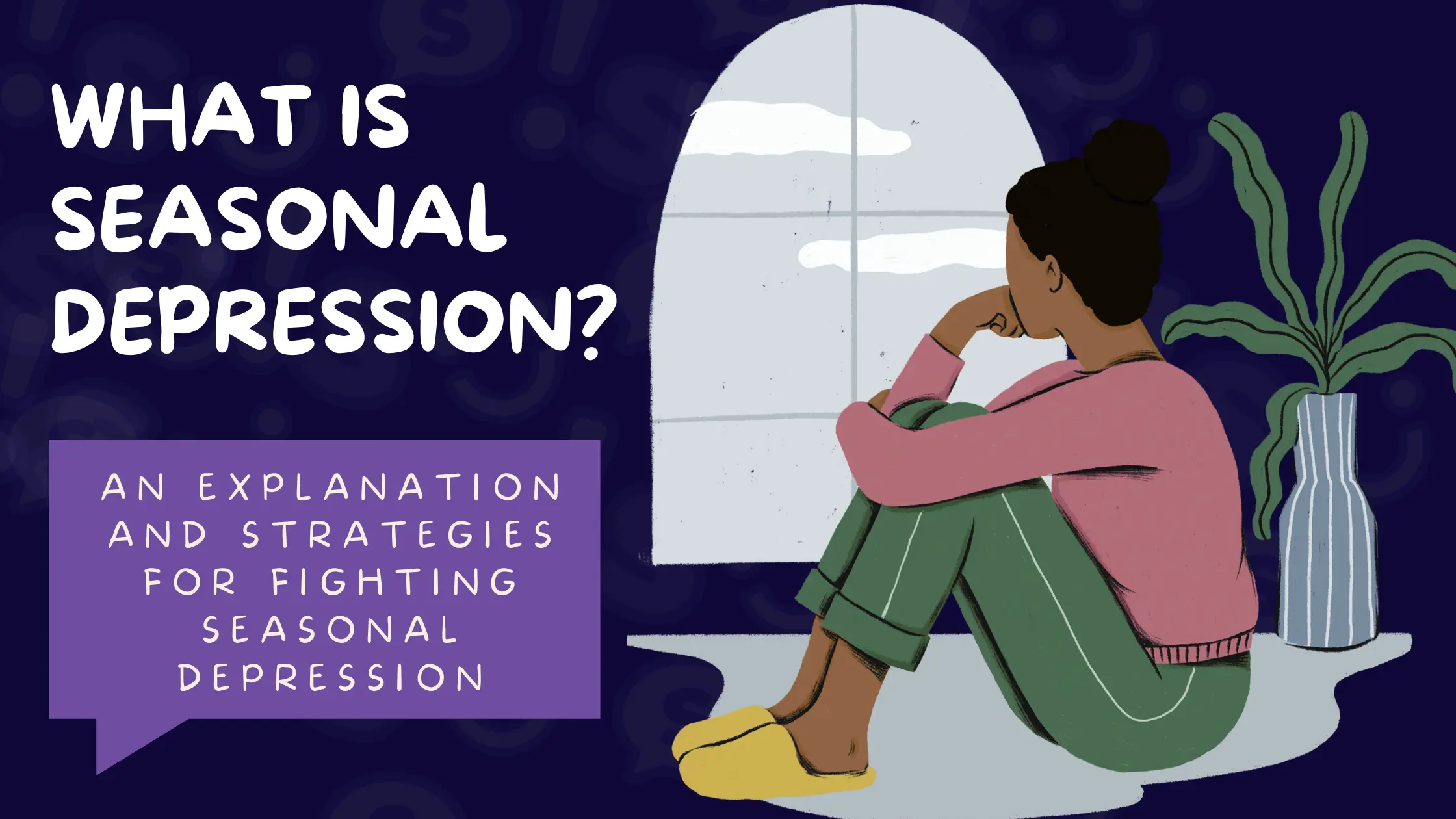This blog was written by Mandi DeLong, a Student Writer at Speaks 2 Inspire:
With the turn of the season, it’s common to see an abundance of new products popping up in department stores and a surge of special drinks in coffee shops. Along with a Christmas tree and a peppermint mocha, however, the seasons’ change can bring along seasonal depression.
Seasonal depression is also called seasonal affective disorder (SAD, a fitting acronym). The most common form happens in the late fall/early winter when you experience a depressive episode that lasts until spring. While most common in winter, some people also experience a version during the summer.
The symptoms are similar to depression, including feelings of intense sadness most of the day almost every day, feelings of hopelessness, lack of energy, and difficulty concentrating. According to the National Institute of Mental Health, winter seasonal depression can also include oversleeping, overeating, weight gain, and social withdrawal, while summer seasonal depression can include insomnia, loss of appetite/weight loss, restlessness and agitation, and anxiety.
Tips for dealing with seasonal depression:
Increase your exposure to light. Metaphorically and literally, seasonal depression thrives in the dark, especially in the winter. One of the best ways to cope with seasonal depression is to make sure you’re getting enough light. You can do this in a variety of ways, including a lightbox, sun lamp, opening your windows, or going outside.
Create a routine. Both forms of seasonal depression can affect your sleep, which can contribute to poor mental health. By creating a routine for getting up in the morning and for going to bed at night, you can train your body to recognize signals for sleep or waking up. Beyond helping your sleep, routines can also help you accomplish what you need to get done or be helpful habits for coping with your mental health. By creating routines, your autopilot allows you to get started rather than requiring a conscious thought process to kickstart whatever you need to do.
Connect with friends or loved ones. It’s too easy to isolate yourself in depressive episodes and let the negative thoughts get the better of you. Furthermore, the seasonal changes are accompanied by drastic weather changes that may make it harder to see your friends or loved ones. Make an effort to reach out to your loved ones to see them consistently. If you can’t see them in person, try using FaceTime or Zoom to spend time together.
If your depression gets worse, reach out to a medical professional for help. There are multiple treatments available for seasonal depression, including light therapy, cognitive behavioral therapy, antidepressants, and vitamin D.
More Mental Health Resources
- PODCAST: Grief and Loss: Navigating the Holiday Blues with Lynette Jackson | EP. 40 of the Unlearn the Lies podcast.
- Four Signs That You Need Therapy
- Tips to manage stress when you are feeling off
At Speaks 2 Inspire, we’re committed to raising mental health awareness among young people in schools.
Contact us to learn more about our programs for colleges and universities.
Join our newsletter for more content, event notifications, and S2I updates.
Was this post valuable? Share it on your social media platform!




